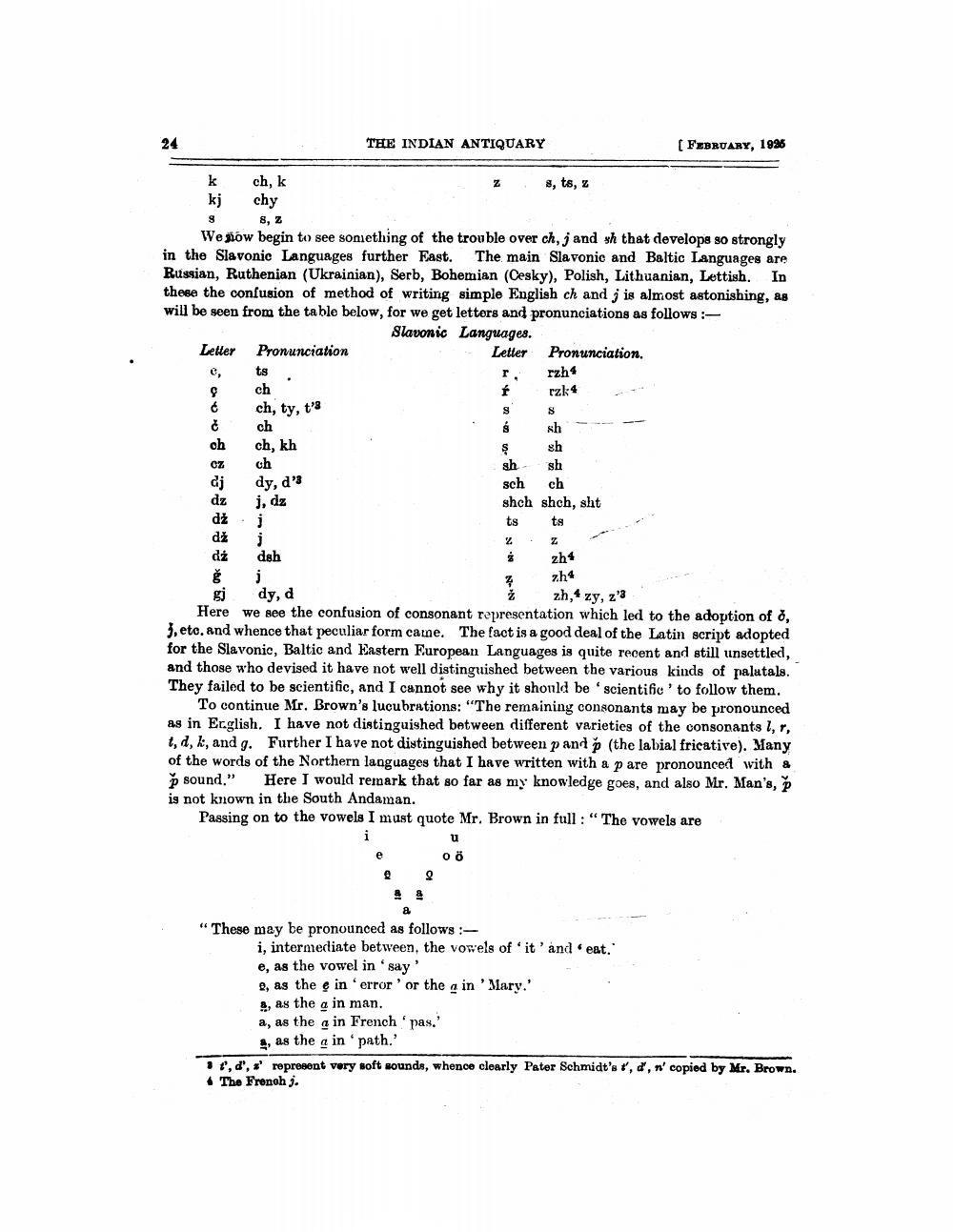________________
24
Letter
0,
9
k
kj
8
8, Z
We now begin to see something of the trouble over ch, j and sh that develops so strongly in the Slavonic Languages further Fast. The main Slavonic and Baltic Languages are Russian, Ruthenian (Ukrainian), Serb, Bohemian (Cesky), Polish, Lithuanian, Lettish. In these the confusion of method of writing simple English ch and j is almost astonishing, as will be seen from the table below, for we get letters and pronunciations as follows:
Slavonic Languages.
Letter
I.
6
č
ch
CZ
dj
dz
dž
dž
dź
ģ
ch, k
chy
Pronunciation
ts
ch
ch, ty, t's
ch
ch, kh
ch
THE INDIAN ANTIQUARY
dy, d'a
j, dz
j
j
dsh
f
S
ģ
$
sh
a, as the a in man.
a, as the a in French 'pas.'
, as the a in path.'
2
s, ts, z
sh
sh
sch ch
ż
Pronunciation.
rzh4
rzk4
shch shch, sht
ts
ts
8
sh
e, as the vowel in 'say '
e, as the e in error or the a in 'Mary.'
Z
zh4
zh4
j
gj
dy, d
Here we see the confusion of consonant representation which led to the adoption of o, j, etc. and whence that peculiar form came. The fact is a good deal of the Latin script adopted for the Slavonic, Baltic and Eastern European Languages is quite recent and still unsettled, and those who devised it have not well distinguished between the various kinds of palatals. They failed to be scientific, and I cannot see why it should be scientific' to follow them.
4
ž zh, zy, z'a
[ FEBRUARY, 1935
To continue Mr. Brown's lucubrations: "The remaining consonants may be pronounced as in English. I have not distinguished between different varieties of the consonants l, r, t, d, k, and g. Further I have not distinguished between p and p (the labial fricative). Many of the words of the Northern languages that I have written with a p are pronounced with a p sound." Here I would remark that so far as my knowledge goes, and also Mr. Man's, p is not known in the South Andaman. Passing on to the vowels I must quote Mr. Brown in full: "The vowels are
i
e
u o ö £ 2
a & a
"These may be pronounced as follows:
i, intermediate between, the vowels of 'it' and eat."
st, d', ' represent very soft sounds, whence clearly Pater Schmidt's t, d', n' copied by Mr. Brown. The French j.




